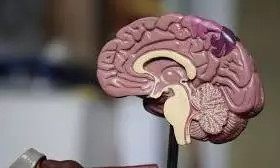
New discoveries in amygdala cells may transform anxiety and depression treatment
text_fieldsResearchers at the University of California, Davis, have identified specific cell clusters within the amygdala that could hold the key to more precise treatments for anxiety, depression, and related emotional disorders.
This breakthrough, published in the American Journal of Psychiatry, highlights a promising path for targeted therapies by focusing on the cells that play a direct role in anxiety regulation.
The research, led by UC Davis psychology professor Drew Fox, underscores the amygdala’s crucial involvement in processing emotions like fear and anxiety.
While prior studies have explored links between amygdala size and emotional disorders, Fox and his team found that cellular composition, rather than size, may be more relevant in the development of anxiety and depression. By investigating the amygdala at a cellular level, researchers hope to understand how specific cell types contribute to emotional dysregulation, which could lead to more targeted treatments.
Using single-cell RNA sequencing, graduate student Shawn Kamboj and Professor Cynthia Schumann, from UC Davis’ School of Medicine, analyzed cell types within the amygdala in both human and non-human primates. This technique enabled the team to identify cells based on their gene expression profiles, offering insights into how distinct cells may impact emotional regulation. This cellular mapping could also facilitate the translation of findings from animal models to human treatment.
A key finding in the study was the identification of cells expressing the FOXP2 gene, which researchers believe plays a critical role in regulating anxiety.
These FOXP2-positive cells, located on the outer edges of the amygdala, appear to serve as “gatekeepers” by managing signals linked to anxiety and fear. In rodent studies, these cells act as checkpoints for information flow related to fear responses. The team also identified a receptor, Neuropeptide FF Receptor 2 (NPFFR2), present in these cells, marking a potential target for future drug development.
This discovery opens doors to innovative treatment options that specifically address the cells responsible for anxiety.
According to Fox, future interventions could focus on these cellular “chokepoints” in emotional processing, paving the way for highly targeted therapies that improve the management of anxiety and depression. By homing in on the specific cells involved, researchers hope to create more effective treatments for those affected by these conditions.























